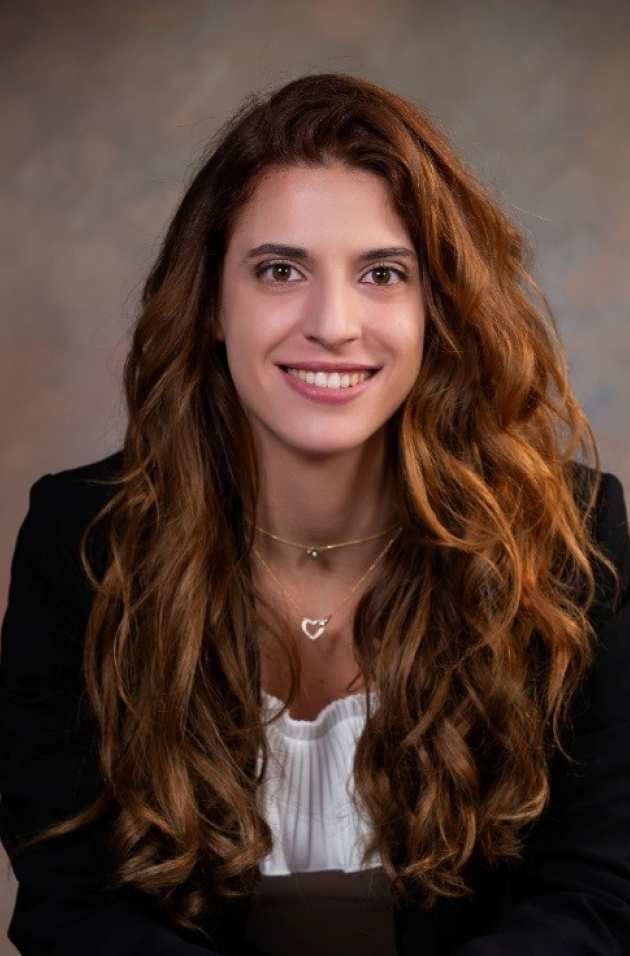2018 PhD Candidate - Petrina Constantinou
P rior to starting her PhD, Petrina completed an MEng degree in the Department of Civil and Environmental Engineering at Imperial College London. Petrina was awarded with an EPSRC Doctoral Training Scholarship to undertake her studies.
rior to starting her PhD, Petrina completed an MEng degree in the Department of Civil and Environmental Engineering at Imperial College London. Petrina was awarded with an EPSRC Doctoral Training Scholarship to undertake her studies.
Why did you decide to do a PhD in the Department of Civil and Environmental Engineering?
During my UROP placement as well as my final year project, I developed an interest in the area of academic research. Having realised the importance of civil engineering through my degree, I explored the different opportunities within the department and identified a topic I wanted to research in more depth.
Tell us about your PhD research
The field of automation is a promising area in the section of road transport that is expected to have profound impacts on the current mobility patterns. The introduction of autonomous vehicles is expected to provide solutions to some of the most urgent road transport problems, such as road safety, social, environmental and economic impacts. The concept of autonomous vehicles has seen a major development over the last decades, illustrating promising grounds for the operation of such a safety critical system. The readiness level for the operation of autonomous vehicles will be satisfactory once the system is able to replace and perform better than a human driver. Hence, it is crucial that the vehicle be situationally aware. A situationally-aware agent is one that is able to understand its surrounding in order to act accordingly. An important component of situational awareness is localization, which is the ability of the agent to know its position on the map. The focus of my work is the development of a system able to provide holistic position, navigation and timing information of high accuracy, integrity, availability and continuity under any possible conditions.
What impact do you hope you research will have/what do you hope your research will lead on to?
With the increasing levels of transport demand there is a variety of implications arising. These vary from social inequality to negative environmental impacts. The ambition for the introduction of autonomous vehicles is that it can be the solution to the majority of the road transport problems. By developing a system which is able to provide the required position, navigation and timing information for the operation of autonomous vehicles, under any environmental conditions, I am hoping that I will have a contribution towards the safe operation of such a system.
Does your research involve working with collaborators outside of the Department? If so who and why?
At the moment, I am not working with collaborators outside the department, but due to the multidisciplinary nature of my topic there is a lot of potential for future collaboration.
What is a typical week like for you?
The nature of a PhD allows for a flexible schedule and hence is something which is self-controlled. Over a typical week I will be in college on a daily basis. Generally, I will be focusing on reviewing research relevant to my topic, exploring potential areas that appear to be promising and investigate the potential of the integration of different processes. At the end of almost every week I meet with my supervisor when we discuss on my progress and potential areas of further research.
How have your skills developed, both professional and personal?
Pursuing a PhD is all about research and exploration beyond the limits. It is a process that requires self-discipline and time-management skills, both of which I am constantly working on and am gradually getting better with time. Additionally, the different courses provided by the Graduate School, are a great opportunity for me to develop the skills required for my research, such as the enhancement of specific programming languages.
Finally, a PhD is a great opportunity for networking and meeting leading people in the field.
What do you enjoy most about being a PhD in the Department?
The thing that I appreciate the most, is the level of support available in the specific department that allows me to pursue my research. I feel lucky to be part of a community with peers from all over the world which are happy to share their passions, interests and ideas with me. Most importantly I feel part of a community where everyone is welcomed.


